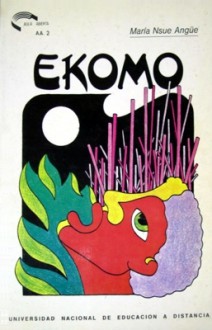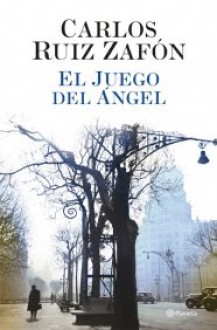
I can’t say this is an objectively bad book, but I can say I really disliked reading it. It’s an absurdist version of Guatemalan history from the 1950s through 1970s, told through the eyes of a boy named Maximo as he grows toward adulthood. This passage toward the end, as Maximo begins to explore his own writing, seems to encapsulate its philosophy (translation is mine):
“I’ll exaggerate. I’ll lie. Chingolo says that to be understood one must lie. It’s another way of getting inside someone. Begin lying fast and furiously and they’ll start to hear me. Lies are sacred, Amarena.”
The mid-19th century was a turbulent, bloody time in Guatemala, and this book is full of brutal, gruesome scenes and imagery, but in a way that seems over-the-top, disconnected from real historical events: there’s a guillotine set up in the capital’s hippodrome to execute losing jockeys; a wealthy couple kills two servants for their attraction to one another and displays their body parts; leaders of a prostitutes’ strike are executed in the manner of Aztec sacrifices, their hearts cut out with obsidian knives before throngs of people in a stadium while the American ambassador, who demanded vengeance for the death of some official, looks on approvingly. Knowing little about Guatemalan history, some of these incidents were easier for me to understand in terms of the author’s message than others. Overall though, it shouldn’t be taken literally, which for those of us unfamiliar with the place and time covered, is disorienting.
Curiously, I did a bit of online research to try to map some of these fictional events onto actual ones, and my key takeaway was that English-language sources tend to portray this period of Guatemala’s history as one of racial terror, i.e., massacres of the Mayan population. This book, on the other hand, portrays it as a period of political terror: a succession of dictatorships masquerading as democracies, the streets ruled by thuggish forces who rape and murder at will, school forever cancelled due to one political disruption or another (in what I assume is another exaggeration, Maximo “graduates” high school without ever attending a day of class; each year, school is cancelled and the students promoted anyway). I am not quite sure how to view the discrepancies between these two versions: Americans glossing over their own country’s role in overturning democratic governments unfriendly to American interests? The author glossing over genocide carried out by, I think, his own racial group? Or perhaps it’s just that this book is mostly set before the genocide really picked up, in 70s and 80s, but that ethnic cleansing naturally tends to overshadow what came before it? As with much of this book, I was left with more questions than answers.
But overall, it’s a difficult book to read, both in the way it’s put together – lack of quotation marks and speaker attributions, sudden jumps in time between paragraphs with no section breaks, etc. – and in its horrific subject matter: not a chapter passes without something gruesome and terrible, whether it’s decomposing bodies littering the streets or the lengthy and graphic rape scene midway through the book that results in permanent disfigurement for one of the victims. I can’t speak to the merits of this book for those more familiar with the time period discussed, but I’m really just glad to be done with it.

 Log in with Facebook
Log in with Facebook 









